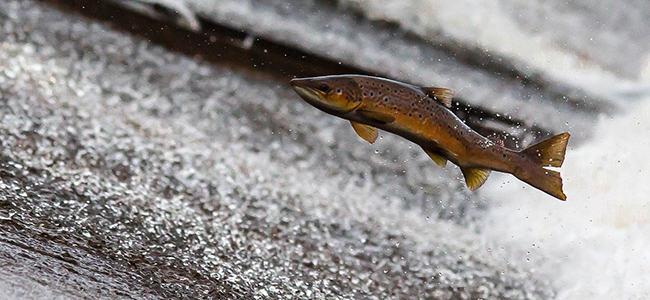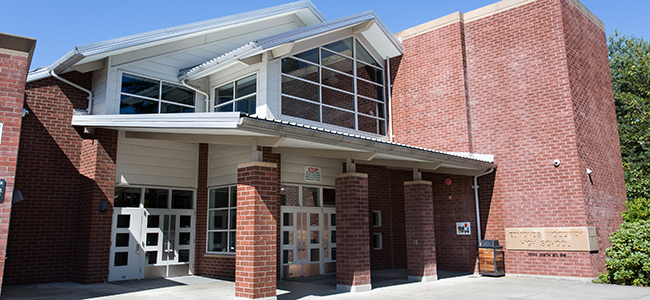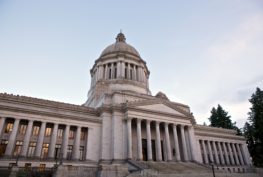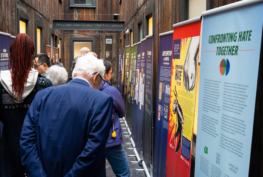Friends:
The Legislature just wrapped up Week 4 of the 2021 legislative session. Lawmakers sent one major piece of COVID legislation to the governor’s desk for his signature with another one not far behind. We’re also working on bills focused on other major priorities like small business support and environmental health. Below is a quick recap of what we’re working on for the residents of Washington.
$1.7 Billion in Small Business Tax Relief
The first COVID relief bill we passed into law this session provides much-needed $1.7 billion unemployment insurance tax relief for small businesses and helps low-wage workers by raising their minimum weekly benefit.
Businesses were facing huge increases for unemployment insurance premiums in 2021 due to a spike in pandemic-related layoffs last year. This premium increase would have caused major financial hardships for most small businesses, so it was important for the Legislature to delay and smooth out those increases over a number of years to allow businesses to get back on their feet.
The bill also helps the state’s lowest-wage workers by raising the minimum weekly unemployment benefit. Washington’s new minimum weekly benefit will rise from $201 to $270.
To date, the Employment Security Department (ESD) has paid out over $14 billion in benefits to Washington workers since the start of the public health emergency. ESD is working to get benefits out as soon as possible, though I have heard stories of some people having trouble getting their claims approved. As always, please reach out to my office if you need any assistance with your unemployment claim.
$2.2 Billion in Economic Aid
Our next major priority will be to approve a broader economic relief package. The House has taken the lead on passing HB 1368 – a $2.2 billion investment in schools, vaccines, housing, small business grants, food assistance, and childcare.
The Senate held a public hearing on this bill a few days ago and we’re scheduled to vote on the bill next week.
In just four weeks, the Legislature has approved nearly $4 billion in economic relief for Washingtonians. We continue to work hard to blunt the worst effects of the pandemic.
Environmental Protection
I have two bills this year that will help protect Washington’s environment for future generations. These are just a handful of the many bills the Legislature is considering to protect our environment and move us toward a clean energy future.
Shoreline armoring

When “hard armoring” bulkheads and seawalls are installed, the natural process of beach and sand erosion is disrupted. Bulkheads destroy near-shore habitats so that forage fish and juvenile salmon don’t have a place to spawn or hide from bigger fish. That is leading to fewer salmon, which results in orca starvation.
Nearly one-third of Puget Sound’s shorelines are armored with structures like bulkheads and seawalls. A lack of adequate salmon population has been identified as one of the factors jeopardizing the Puget Sound’s Southern Resident Orca population.
The hard armor structures are devastating to marine life and should be actively discouraged. My bill, SB 5273, will require people to use an alternative that has the least amount of negative impact on marine life when replacing existing shoreline armoring.
SB 5273 was approved by the Senate Agriculture, Water, Natural Resources & Parks Committee this week.
Salmon Habitat

The need for more housing, drinking water, and other resources is steadily increasing as our state continues to grow. This growth can put a strain on habitat critical to sustaining salmon populations. Land development increases paving and impervious surfaces, which in turn increases the amount of pollution and contaminated stormwater entering waterways.
Since much of growth planning occurs at the local level, our statewide salmon recovery and conservation efforts could benefit further through strengthened policies and regulations adopted by counties and cities to make sure we don’t lose salmon habitat as we develop.
I have a bill, SB 5306, that will require the Department of Fish and Wildlife (DFW) to adopt conservation and restoration guidelines to assist counties and cities in the preservation and enhancement of anadromous fisheries. The bill also requires counties and cities to review and update critical areas policies and development regulations to implement the guidelines.
SB 5306 had a public hearing in the Senate Agriculture, Water, Natural Resources & Parks Committee this week.
How to reach me in 2021
The Legislature has gone mostly remote for the year while the public health crisis remains, so I will not be taking in-person meetings with constituents. I promise however to remain accessible. All of my meetings are being done over the phone or through video conference.
You can click here to contact my office to set up a phone or remote meeting.
Sincerely,

Jesse Salomon
State Senator
32nd Legislative District



